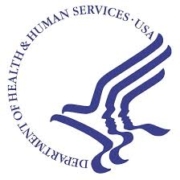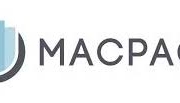The following is the latest health policy news from the federal government as of 2:45 p.m. on Wednesday, July 14. Some of the language used below is taken directly from government documents.
 CMS – Proposed 2022 Medicare Physician Fee Schedule Rule
CMS – Proposed 2022 Medicare Physician Fee Schedule Rule
CMS has released its proposed Medicare physician fee schedule rule for 2022. Highlights of the proposed rule, which is more than 1700 pages, include:
- loosening current restrictions on the use of telehealth and expanding its use for behavioral health services;
- expanding the reach of the Medicare Diabetes Prevention Program;
- requiring clinicians to meet a higher performance threshold to receive incentives under the Quality Payment Program;
- authorizing physician assistants to bill Medicare directly for the Part B services they provide; and
- phasing out coinsurance for colorectal screening additional services.
In addition, CMS is soliciting stakeholder feedback on health equity data collection and on current Medicare payments for administering vaccines.
For further information about the proposed physician fee schedule rule, see the following resources:
CMS’s news release announcing the newly proposed rule
quality program update fact sheet
Medicare Diabetes Prevention Program update fact sheet
Centers for Medicare & Medicaid Services
Health Policy News
- CMS has published the latest edition of MLN Connects, its online weekly bulletin. This week’s edition includes an article about cognitive assessment resources for providers, updated FY 2022 ICD-10-CMS codes, and opportunities for web-based training on aspects of Medicare billing. For this and more, go here.
- CMS has announced that it will open a National Coverage Determination (NCD) analysis through which it will review and determine whether Medicare will establish a national Medicare coverage policy for monoclonal antibodies targeting amyloid for the treatment of Alzheimer’s disease. NCDs are program instructions developed by CMS to describe the nation-wide conditions for Medicare coverage for a specific item or service. This NCD analysis will be applicable to national coverage considerations for aducanumab, which was recently approved by the FDA, as well as any future monoclonal antibodies that target amyloid for the treatment of Alzheimer’s disease. As part of the NCD process, a 30-day public comment period began on July 12. CMS will host two public listening sessions in July to provide an opportunity for public input. Learn more from this CMS announcement.
- CMS has announced that it will distribute $15 million in American Rescue Plan funding to provide community-based mobile crisis intervention services for those with Medicaid. The $15 million funding opportunity is available to state Medicaid agencies, not providers, for planning grants to support developing these programs.
- CMS’s Accountable Health Communities (AHC) Model assesses whether bridging the gap between clinical care and social services can reduce health care utilization and costs for Medicare and Medicaid beneficiaries. In February 2021, CMS hosted its third annual AHC meeting virtually to convene 28 bridge organizations participating in the AHC model and key partners, including community service providers, state Medicaid agencies, and advisory board members. Meeting participants collaborated and shared insights to sustain their screening, referral, and navigation strategies to address the health-related social needs of Medicare and Medicaid beneficiaries. Learn more about their insights in the brief “Planning for Sustainability and Advancing Health Equity during the Public Health Emergency.”
Provider Relief Fund
- HHS has updated the “Reporting Requirements and Auditing” page of its Provider Relief Fund web site.
 Department of Health and Human Services
Department of Health and Human Services
Health Policy News
- HHS has provided $398 million in American Rescue Plan money through the Small Rural Hospital Improvement Program to 1540 small rural hospitals for COVID-19 testing and mitigation. See the HHS announcement here, including a list of how much was distributed to hospitals in each state.
- HHS’s Health Resources and Services Administration (HRSA) has published a notice in the Federal Register announcing the availability of complete lists of all geographic areas, population groups, and facilities designated as primary medical care, dental health, and mental health professional shortage areas (HPSAs) as of April 30, 2021. See the HRSA notice here and find the updated lists of HPSAs here.
Centers for Disease Control and Prevention
COVID-19
- The CDC has published a document addressing key operational considerations for entities planning to operate COVID-19 vaccination clinics.
- The CDC has updated its information about adverse events after individuals receive COVID-19 vaccines.
Food and Drug Administration
COVID-19
- The FDA has modified its emergency use authorization (EUA) for the Johnson & Johnson Janssen Biotech COVID-19 vaccine to include a warning about the possibility of vaccine recipients contracting Guillain-Barré syndrome, which FDA documents explain “… is very low.” Vaccine fact sheets for providers and consumers have been revised to reflect this possibility and list symptoms. Learn more from the following resources:
Please note that the vaccine’s FAQ and separate fact sheets translated into other languages have not yet been updated.
 Medicaid and CHIP Payment and Access Commission (MACPAC)
Medicaid and CHIP Payment and Access Commission (MACPAC)
- MACPAC has released an issue brief that examines implementation of the Mental Health Parity and Addiction Equity Act in Medicaid and CHIP. It provides background on federal parity laws, describes Medicaid and CHIP requirements under the Mental Health Parity and Addiction Equity Act in Medicaid and CHIP, and includes findings from interviews with state Medicaid officials, managed care organizations, beneficiary advocates in three states, officials from CMS, and representatives from other national organizations.
Occupational Safety and Health Administration (OSHA)
- OSHA announced that it is extending the comment period for the COVID-19 health care emergency temporary standard to August 20. On June 21, 2021 OSHA published an emergency temporary standard to protect health care and health care support service workers from occupational exposure to COVID-19 in settings where workers are likely to have contact with someone infected with the virus. Learn more about the emergency temporary standard here. The emergency temporary standard took effect on June 21 and the extended deadline for comment does not change its effective date.
Office of Management and Budget (OMB)
- OMB has published its semi-annual work plan presenting its regulatory priorities in the coming months. Among the HHS matters listed, in addition to those that occur regularly, are:
- Streamlining the Medicaid and CHIP Application, Eligibility Determination, Enrollment, and Renewal Processes
- Medicaid Drug Misclassification, Beneficiary Access Protection, and Drug Program Administration
- Mandatory Medicaid and CHIP Core Set Reporting
- Medicaid Managed Care Risk-Sharing Mechanisms
- Temporary Federal Medical Assistance Percentage (FMAP) increase under the Families First Coronavirus Response Act
See the complete HHS list here.
Stakeholder Events
Thursday, July 15 – Centers for Disease Control
CDC National Call Series on COVID-19-Related Response Strategies
Thursday, July 15 at 2:00 – 3:00 pm ET Click here to join
CDC’s COVID-19 response team conducts a national call weekly to provide state, tribal, local, and territorial (STLT) partners with timely updates and opportunities for peer-to-peer learning and sharing of successful response strategies. Over the summer, these weekly COVID-19 community of practice webinars will focus on topics related to school readiness.
Monday, July 19 – National Emergency Management Association (NEMA)
Mission-Ready Packages Workshop for Resource Providers
Monday, July 19 at 1:00 pm ET Click here for registration
NEMA is hosting a workshop on developing mission ready packages (MRPs). MRPs are specific response or recovery capabilities that have been created to ensure the skills, capabilities, and associated costs are bundled prior to an emergency or disaster for more efficient deployment. These workshop sessions are designed for resource providers. A resource provider is any organization that is able to deploy under the Emergency Management Assistance Compact (EMAC) and that has capabilities that might be needed during an emergency response. Previous knowledge of EMAC or MRPs is not required.
Tuesday, July 20 – Health Resources and Services Administration (HRSA)
Provider Relief Fund Reporting Requirements
Tuesday, July 20 at 3:00 pm ET
HRSA will host a recorded Reporting Technical Assistance session to provide technical assistance on reporting requirements for Provider Relief Fund recipients and stakeholders. To register for the July 20 session go here.
Thursday, July 22 – HHS’s Health Sector Cybersecurity Coordination Center (HC3)
HC3 Cybersecurity Threat Briefing – Qbot/QakBot
Thursday, July 22 at 1:00 pm ET – Click here for registration
HC3 is holding its second July threat briefing, the topic will be “Qbot/QakBot.” This webinar will provide actionable information on health sector cybersecurity threats and mitigations. HC3 analysts will engage in discussions with participants on current threats and highlight best practices and mitigation tactics.
Wednesday, August 4 – Centers for Disease Control
Zoonoses and One Health Update (ZOHU) Call
Wednesday, August 4 at 2:00 – 3:00 pm ET – Click here for more information
ZOHU Calls are one-hour monthly webinars that provide timely education on zoonotic and infectious diseases, One Health, antimicrobial resistance, food safety, vector-borne diseases, recent outbreaks, and related health threats at the animal-human-environment interface.

 CMS – Proposed 2022 Medicare Physician Fee Schedule Rule
CMS – Proposed 2022 Medicare Physician Fee Schedule Rule Department of Health and Human Services
Department of Health and Human Services Medicaid and CHIP Payment and Access Commission (MACPAC)
Medicaid and CHIP Payment and Access Commission (MACPAC)